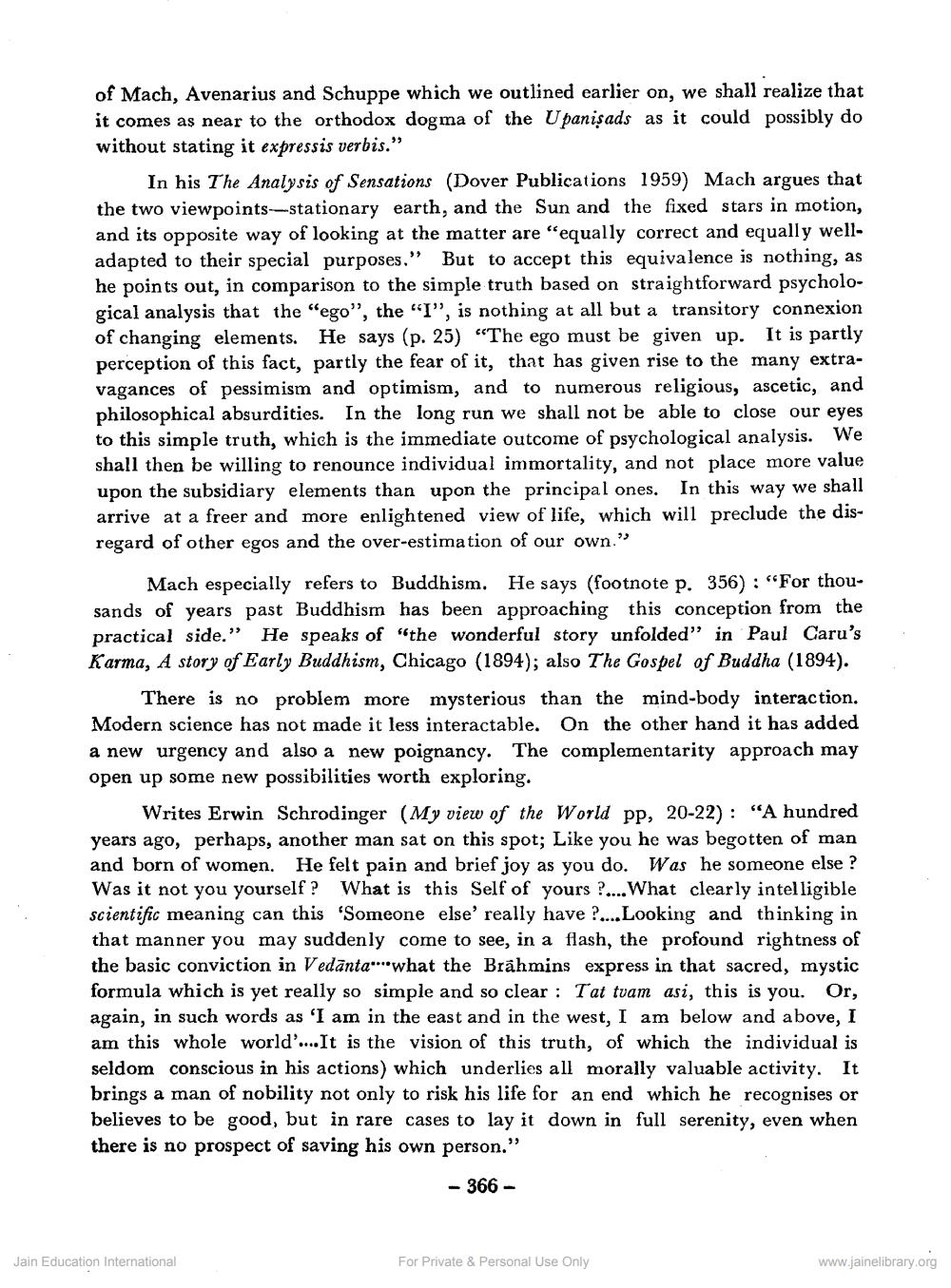Book Title: Reality and Physics Some Aspects Author(s): D S Kothari Publisher: Z_Kailashchandra_Shastri_Abhinandan_Granth_012048.pdf View full book textPage 2
________________ of Mach, Avenarius and Schuppe which we outlined earlier on, we shall realize that it comes as near to the orthodox dogma of the Upanişads as it could possibly do without stating it expressis verbis." In his The Analysis of Sensations (Dover Publications 1959) Mach argues that the two viewpoints--stationary earth, and the Sun and the fixed stars in motion, and its opposite way of looking at the matter are "equally correct and equally welladapted to their special purposes." But to accept this equivalence is nothing, as he points out, in comparison to the simple truth based on straightforward psychological analysis that the "ego", the "I", is nothing at all but a transitory connexion of changing elements. He says (p. 25) "The ego must be given up. It is partly perception of this fact, partly the fear of it, that has given rise to the many extravagances of pessimism and optimism, and to numerous religious, ascetic, and philosophical absurdities. In the long run we shall not be able to close our eyes to this simple truth, which is the immediate outcome of psychological analysis. We shall then be willing to renounce individual immortality, and not place more value upon the subsidiary elements than upon the principal ones. In this way we shall arrive at a freer and more enlightened view of life, which will preclude the disregard of other egos and the over-estimation of our own." Mach especially refers to Buddhism. He says (footnote p. 356) : "For thousands of years past Buddhism has been approaching this conception from the practical side." He speaks of the wonderful story unfolded" in Paul Caru's Karma, A story of Early Buddhism, Chicago (1894); also The Gospel of Buddha (1894). There is no problem more mysterious than the mind-body interaction. Modern science has not made it less interactable. On the other hand it has added a new urgency and also a new poignancy. The complementarity approach may open up some new possibilities worth exploring. Writes Erwin Schrodinger (My view of the World pp, 20-22): "A hundred years ago, perhaps, another man sat on this spot; Like you he was begotten of man and born of women. He felt pain and brief joy as you do. Was he someone else? Was it not you yourself? What is this Self of yours ?.... What clearly intelligible scientific meaning can this 'Someone else' really have ?.... Looking and thinking in that manner you may suddenly come to see, in a flash, the profound rightness of the basic conviction in Vedānta**•what the Brahmins express in that sacred, mystic formula which is yet really so simple and so clear : Tat tuam asi, this is you. Or, again, in such words as 'I am in the east and in the west, I am below and above, I am this whole world'.... It is the vision of this truth, of which the individual is seldom conscious in his actions) which underlies all morally valuable activity. It brings a man of nobility not only to risk his life for an end which he recognises or believes to be good, but in rare cases to lay it down in full serenity, even when there is no prospect of saving his own person." - 366 - Jain Education International For Private & Personal Use Only www.jainelibrary.orgPage Navigation
1 2 3 4 5 6 7 8 9 10
